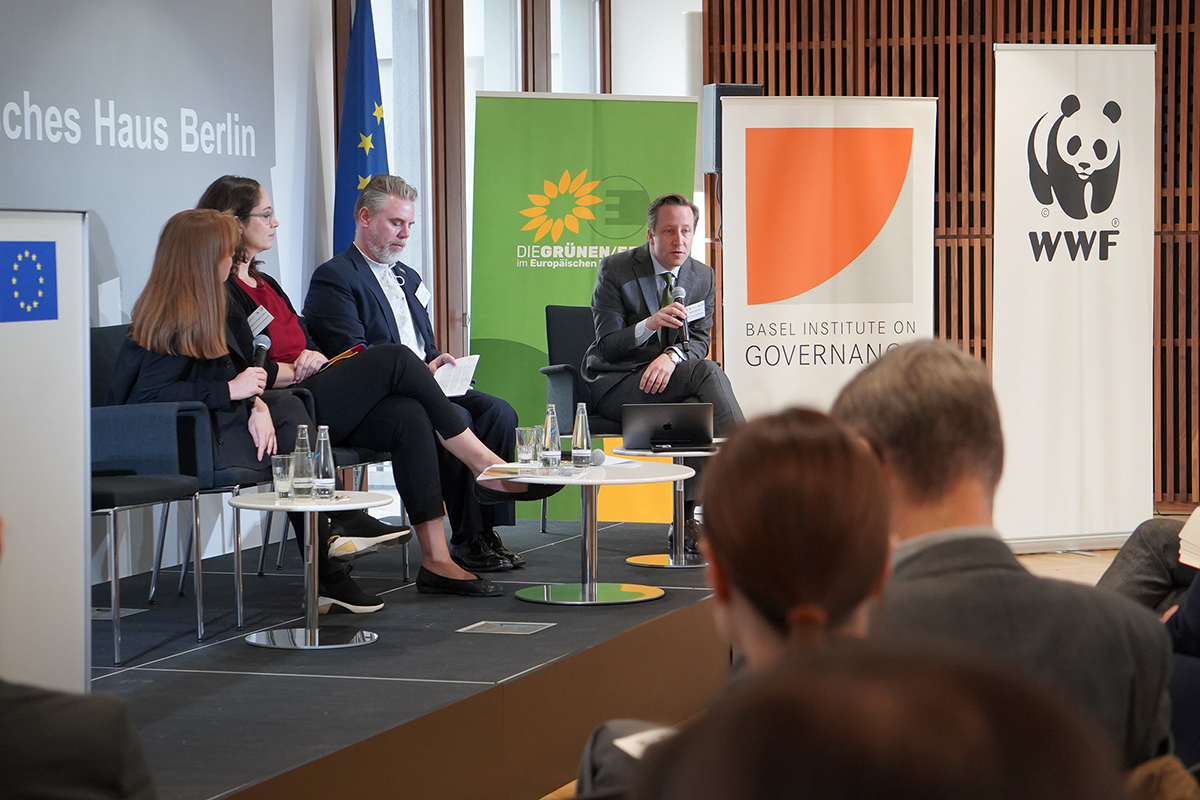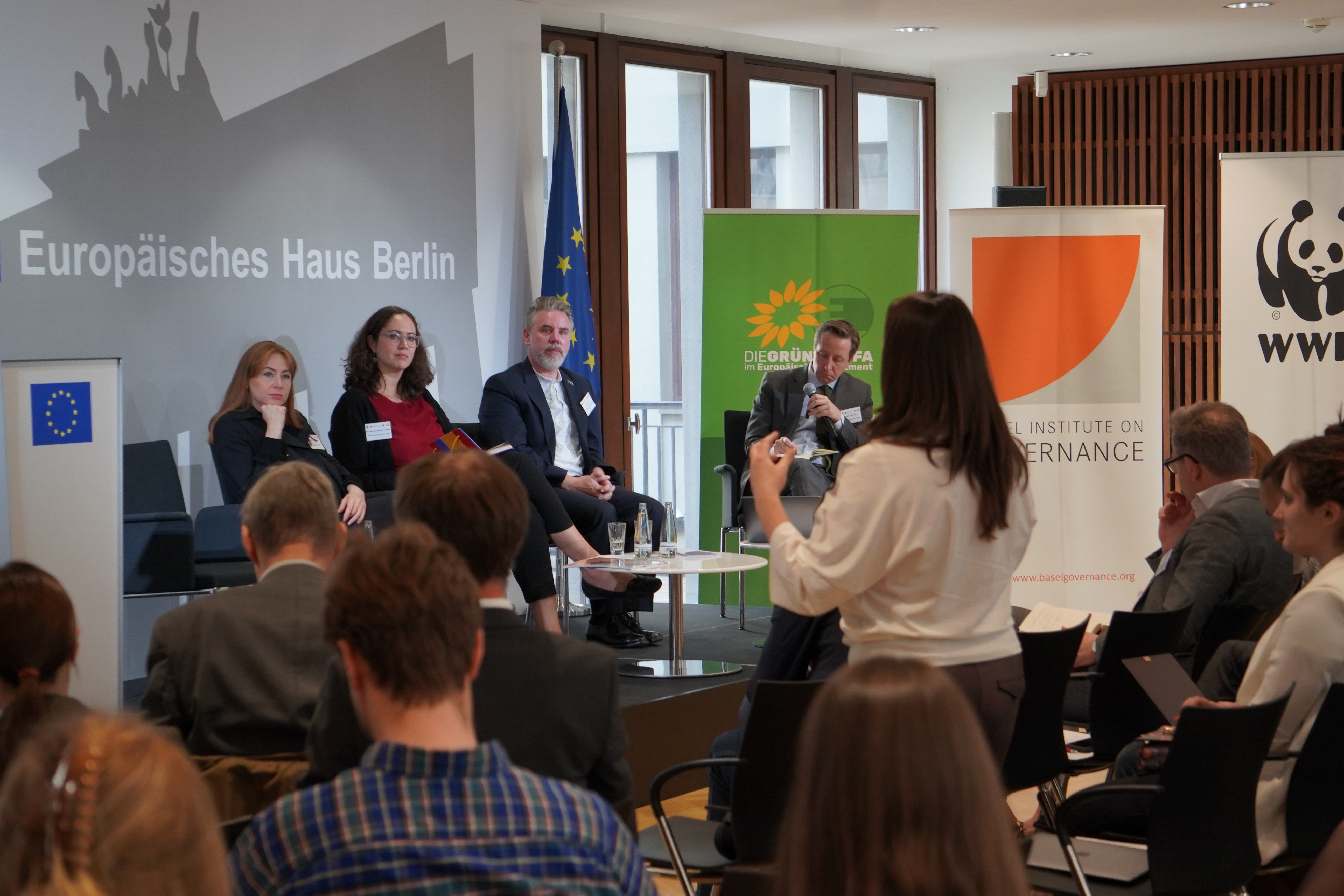Will Ukraine's Restoration be climate neutral and nature positive? Only with sound environmental governance, say experts ahead of the Ukraine Recovery Conference

Ukraine’s Restoration is primarily about recovering from the immense human suffering and destruction to infrastructure and the natural environment the war has caused. But the Restoration, which has already begun, also offers a chance for Ukraine to advance towards a climate-neutral and nature-positive future in line with EU ambitions and international obligations. For that to happen, we need to expand the tide of governance reforms currently swelling in the Restoration process to also cover environmental governance.
Environmental governance needs to be included in the Restoration from the planning stage, said leading experts and policy makers at a multi-stakeholder workshop in Berlin, Germany, on 26 May 2023. The workshop brought together leading voices from Ukraine and its European partners. The participants discussed what it would take to help Ukraine move toward a sustainable, climate-neutral and nature-positive post-war future. In essence, toward a dynamic economy within the EU, powered by renewable energy and industries producing sustainable agricultural and wood products.
We were delighted to co-organise the workshop through our Green Corruption team and together with WWF Central and Eastern Europe and Member of the European Parliament Viola von Cramon-Taubadel.
Raising nature and governance up the agenda
Environmental sustainability and governance are only just starting to play a role in Restoration dialogues, as seen in recent statements from the Ministry of Infrastructure and civil society recommendations. Further elevating these topics would be wholly in line with Ukraine’s commitment to the EU integration process, the Paris Agreement and the new UN Global Biodiversity Framework.
While climate and nature might not seem a major priority during wartime, incorporating these into the planning process will help Ukraine along its pathway to a future-proof recovery and compliance with international obligations. It will also accelerate Ukraine’s journey to joining the EU and help ensure its economy is competitive once integrated in the bloc.
The workshop participants concluded that in order to honour the sacrifices of Ukraine and Ukrainians, those involved in the Restoration process, including foreign actors, must do everything possible to help make the country environmentally safe for future generations. This is a critical moment when we must ensure the post-war Restoration helps meet Ukraine’s environmental goals.
And it is absolutely essential not just for Ukraine, but for Europe and beyond. As one of the largest countries in the region, Ukraine's future environmental, social and economic resilience impacts overall resilience.
Practical implications
In addition to elevating climate, nature and environmental concerns to central tenets of Restoration planning, efforts will be needed to ensure a solid governance system. This would ease the flow of international recovery funds linked to green criteria and good governance requirements, and make investments more secure.
Specifically, this means:
- Extending governance reforms to the environmental sector. Ukraine has made significant strides during war time to address governance, transparency and integrity concerns. These reforms are not yet equally spread, however. Consistently extending these reforms to the natural resource and environmental sectors would be a crucial prerequisite to creating a competitive post-war economy.
- Ensuring a greater prominence of environmental considerations in Restoration planning efforts that are already underway. Among other benefits, this would reduce the need for the adjustments that will inevitably be required as part of EU integration.
- Continuing to engage civil society actors in the Restoration planning efforts, ensuring various relevant sectors, including environmental actors, are engaged.
- Fully utilising Ukraine’s impressive technical know-how to ensure transparency, accountability and environmental compliance.
Juhani Grossmann, who leads the Basel Institute’s Green Corruption programme and is Senior Advisor for Central and Eastern Europe, said:
“Ukraine is already wholeheartedly rejecting its Soviet legacy in favour of European integration, with a tremendous commitment to governance reforms in an exceptionally difficult time. Disrespect towards nature is an unfortunate part of that legacy. By demanding high environmental standards in the Restoration process – and enforcing these standards transparently – we can achieve a post-victory Ukraine that is worth living in.”
Looking ahead
We look forward to participating in the London Ukraine Recovery Conference (#URC2023) on 21–22 June 2023, and to presenting updated recommendations on anti-corruption together with Transparency International Ukraine.
And we will continue to encourage all participants at the URC2023 and related dialogues to ensure that sustainability and governance are key elements of the Restoration agenda.
And most importantly, we will continue to support our Ukrainian partners in their efforts to assess and prevent corruption risks, including under a recent Memorandum of Cooperation with the Ministry for Restoration (Ministry of Communities, Territories and Infrastructure Development of Ukraine).
Learn more
- On forestry governance issues in the context of the war and Restoration, see the Basel Institute on Governance’s recent working paper: How corruption threatens the forests of Ukraine: typology and case studies on corruption and illegal logging.
- See our joint recommendations on anti-corruption with TI-Ukraine presented at the Lugano Ukraine Recovery Conference in 2022, the updated version presented at the International Anti-Corruption Conference in December 2022 and a joint blog by our Managing Director Gretta Fenner and TI-Ukraine Executive Director Andrii Borovyk.
- See a summary and photos from a recent corruption risk assessment workshop with Ukraine Railways (Ukrzaliznytsia), led by Juhani Grossmann and our Senior Advisor Gemma Aiolfi.




